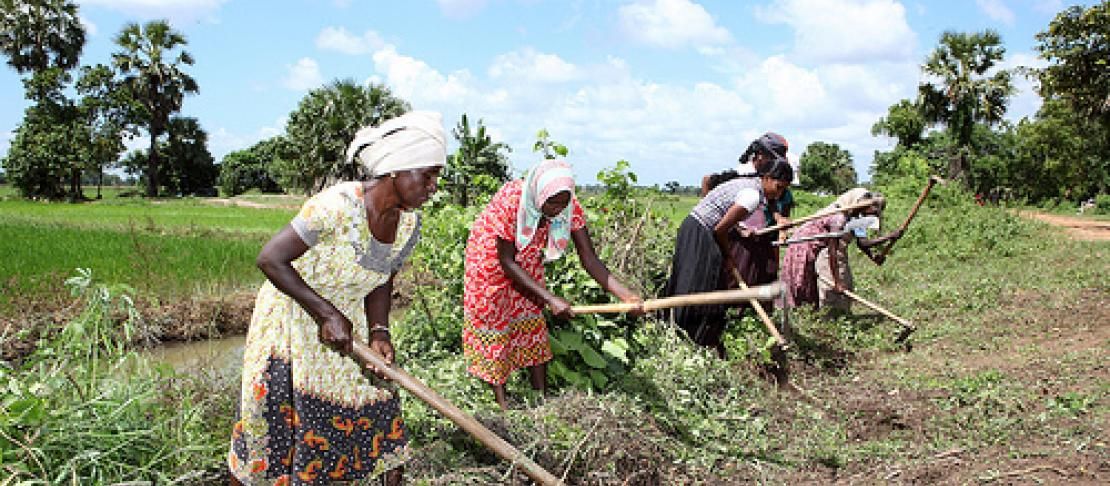In Sri Lanka, research translates into action on climate adaptation

by Vanessa Meadu
In Sri Lanka, where climate change is expected to contribute to rising temperatures and changes in the quantity and distribution of rainfall, there are serious concerns about the impacts on farming. This extends to the livelihoods of smallholder farmers who rely on the land for income, and also the food security of Sri Lankans who rely on key crops for food.
The International Water Management Institute (IWMI), which has been working in partnership with Sri Lankan government agencies in 2009, has made a significant contribution to the development of Sri Lanka’s climate change adaptation policies.
Under the CGIAR Research Program on Climate Change, Agriculture and Food Security(CCAFS), IWMI researchers embarked on a major review and analysis of vulnerability to climate change in the country. According to an impact case study just published by the European Initiative for Agricultural Research for Development (EIARD), "The study elaborated the high degree of uncertainty associated with Sri Lanka's future climate,and pointed out that the best course of action would be to embrace 'no regrets' adaptation interventions which simultaneously deliver climate resilience and address current development needs, rather than to wait for climate modelling to unravel the ambiguitiesand uncertainties."
Read more about this exciting work.
Read more EIARD impact case studies featuring work from other CGIAR centers including Africa Rice Center, Bioversity International, and the International Center for Tropical Agriculture (CIAT).
Vanessa Meadu is Communications and Knowledge Manager at CCAFS. Follow us on twitter @cgiarclimate.

